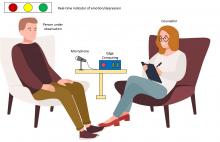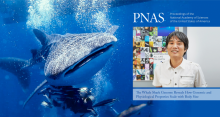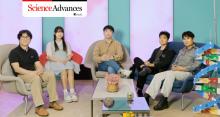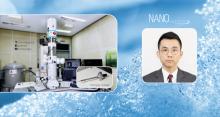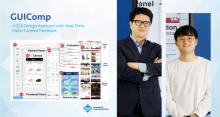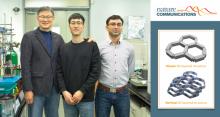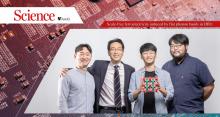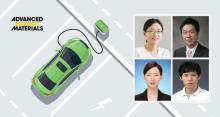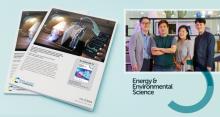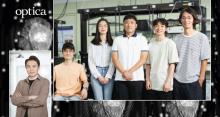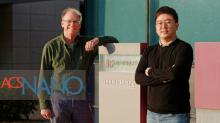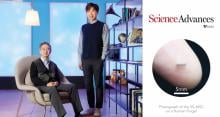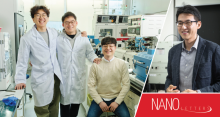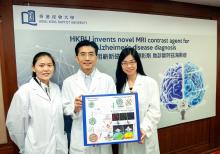Invention
News
08 Jan 2021
Diamond is the hardest material in nature. But out of many expectations, it also has great potential as an excellent electronic material. A joint research team led by City University of Hong Kong (CityU) has demonstrated for the first time the large, uniform tensile elastic straining of microfabricated diamond arrays through the nanomechanical approach. Their findings have shown the potential of strained diamonds as prime candidates for advanced functional devices in microelectronics, photonics, and quantum information technologies.
20 Nov 2020
A research team, affiliated with South Korea's Ulsan National Institute of Science and Technology (UNIST) has presented the whole-genome sequence and analyses of the endangered whale shark (Rhincodon typus), the largest extant fish on Earth.
20 Nov 2020
A research team, affiliated with South Korea's Ulsan National Institute of Science and Technology (UNIST) has recently reported a significant discovery that could bring solar hydrogen production a step closer to reality.
20 Nov 2020
A research team, affiliated with South Korea's Ulsan National Institute of Science and Technology (UNIST) has unveiled a new eco-friendly and low-cost method to synthesize indolopyran, one type of nitrogen ring compound, contained in about 60% of drugs that are recently approved by FDA.
20 Nov 2020
A research team, affiliated with South Korea's Ulsan National Institute of Science and Technology (UNIST) has introduced a novel responsive system, capable of molecular recognition of physicochemically similar mixtures, such as isotopes.
20 Nov 2020
A research team, affiliated with South Korea's Ulsan National Institute of Science and Technology (UNIST) has presented a new class of efficient catalysts, made from inexpensive carbon compounds and ruthenium (Ru).
20 Nov 2020
A research team, affiliated with the Korea Genomics Center (KOGIC) at UNIST has released data from the initial phase of the Korean Genome Project (Korea1K), including information describing 1,094 whole genomes, along with 79 quantitative clinical traits.
20 Nov 2020
A research team, affiliated with South Korea's Ulsan National Institute of Science and Technology (UNIST) has succeeded in analyzing the structure of the sulfide-based solid electrolytes (SEs) at the atomic level.
20 Nov 2020
A research team, affiliated with South Korea's Ulsan National Institute of Science and Technology (UNIST) has developed a deep learning-based AI system that can provide design recommendations regarding the best layouts through the assessment of graphical user interfaces (GUIs) of the mobile application.
20 Nov 2020
A research team, affiliated with South Korea's Ulsan National Institute of Science and Technology (UNIST) has developed an electrolyte additive (MA-C60) to reduce the problematic behaviors induced by water contamination and the ROS generated from Li‐rich cathodes.
20 Nov 2020
A research team, affiliated with South Korea's Ulsan National Institute of Science and Technology (UNIST) has proposed a new experimental approach for estimating the H‐bond free energy of local biological water.
20 Nov 2020
A research team, affiliated with South Korea's Ulsan National Institute of Science and Technology (UNIST) has designed and synthesized a vertical two-dimensional (2D) layered structure to develop materials that exhibit excellent performance in terms of gas storage and for the removal of toxic substances.
19 Nov 2020
A research team, affiliated with South Korea's Ulsan National Institute of Science and Technology (UNIST) has proposed a new physical phenomenon that promises enhanced storage capacity of a fingernail-sized memory chip by 1,000 times.
19 Nov 2020
A research team, affiliated with South Korea's Ulsan National Institute of Science and Technology (UNIST) established an advanced direct conversion strategy to generate iMNs from human fibroblasts in large-scale with high purity, thereby providing a cell source for treatment of SCI.
19 Nov 2020
A recent study, affiliated with South Korea's Ulsan National Institute of Science and Technology (UNIST) has unveiled a new water-splitting hydrogen catalyst, namely Ru@MWCNT.
19 Nov 2020
A recent study, affiliated with South Korea's Ulsan National Institute of Science and Technology (UNIST) has presented new electrolyte additives for high-performance LIBs that would enable an electric vehicle (EV) to travel longer distances on a single charge.
19 Nov 2020
A research team, affiliated with South Korea's Ulsan National Institute of Science and Technology (UNIST) has presented an external-power-free single-structured PRB, named a dye-sensitized photo-rechargeable battery (DSPB) with an outstanding light-to-charge energy efficiency (ηoverall) of 11.5% under the dim light condition.
03 Nov 2020
A recent study, affiliated with South Korea's Ulsan National Institute of Science and Technology (UNIST) has proposed a new technique that controls the spatiotemporal resolution of Structured Illumination Microscopy (SIM) within a single image.
03 Nov 2020
A recent study, affiliated with South Korea's Ulsan National Institute of Science and Technology (UNIST) has synthesized a film composed of densely packed diamond-like carbon nanofibers. l Image Credit: Kyoungchae Kim
03 Nov 2020
A recent study, affiliated with South Korea's Ulsan National Institute of Science and Technology (UNIST) has developed a tiny micro supercapacitor (MSC), being small as the width of a person's fingerprint.
03 Nov 2020
A recent study, affiliated with South Korea's Ulsan National Institute of Science and Technology (UNIST) has unveiled 2D material-based ultrasensitive surface-enhanced Raman spectroscopy (SERS) sensor by synthesizing uniform large-area ReOxSy thin films.
03 Nov 2020
South Korea's Ulsan National Institute of Science and Technology (UNIST), in partnership with Class 101, expands quality online lectures.
03 Nov 2020
A design team, affiliated with South Korea's Ulsan National Institute of Science and Technology (UNIST) honored with 2020 iF Design Awards in the communication design category.
03 Nov 2020
A group of students, affiliated with South Korea's Ulsan National Institute of Science and Technology (UNIST) has created a map to help track the spread of the COVID-19 in Ulsan region.
28 Oct 2020
Hong Kong Baptist University (HKBU) scientists have invented a novel contrast agent for magnetic resonance imaging (MRI), which enables real-time visualisation and detection of the size and number of amyloid-beta in the brain, a main hallmark of Alzheimer’s disease (AD). The invention offers hope for early detection and large-scale routine screening of AD. It can also help to assess the efficacy of drugs used to treat it.
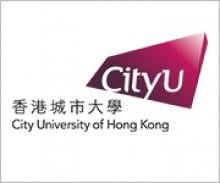
11 Sep 2020
Face masks have become an important tool in fighting against the COVID-19 pandemic. However, improper use or disposal of masks may lead to "secondary transmission". A research team from City University of Hong Kong (CityU) has successfully produced graphene masks with an anti-bacterial efficiency of 80%, which can be enhanced to almost 100% with exposure to sunlight for around 10 minutes. Initial tests also showed very promising results in the deactivation of two species of coronaviruses. The graphene masks are easily produced at low cost, and can help to resolve the problems of sourcing raw materials and disposing of non-biodegradable masks.
31 Aug 2020
Researchers from Hong Kong Baptist University (HKBU) have developed a COVID-19 alert system which will send a message to users through a mobile app if they and an infected person have visited the same place within a time period that gives rise to risks of exposure. The system will not collect users’ personal information and location data, thereby protecting individuals’ privacy while alerting them on disease transmission risks associated with confirmed infection cases.

29 Jul 2020
Intermetallic alloys potentially have high strength in a high-temperature environment. But they generally suffer poor ductility at ambient and low temperatures, hence limiting their applications in aerospace and other engineering fields. Yet, a research team led by scientists of City University of Hong Kong (CityU) has recently discovered the disordered nanoscale layers at grain boundaries in the ordered intermetallic alloys. The nanolayers can not only resolve the irreconcilable conflict between strength and ductility effectively, but also maintain the alloy’s strength with excellent thermal stability at high temperatures. Designing similar nanolayers may open a pathway for the design of new structural materials with optimal alloy properties.
Events
Sorry, no events coming up for this topic.
Researchers
Sorry, no researchers coming up for this topic.
Giants in history
Sorry, no researchers coming up for this topic.


